To mark NAIDOC Week 2020, Sophie Coppenhall, Geoff Bew, and Chris Dabbs discuss human rights and how western diets have impacted Aboriginal Australians and the New Zealand Maori.
We are University of Brighton postgraduate MA Journalism students.
=========================References:==========================
- Teicholz, N., 2015. The Big Fat Surprise. New York: Simon & Schuster Paperbacks, pp.299, 300.
- Noakes, T., Creed, S. and Proudfoot, J., 2016. The Real Meal Revolution. 10th ed. Robinson, pp.246-291.
- Noakes, T. and Sboros, M., 2019. Real Food On Trial: How The Diet Dictators Tried To Destroy A Top Scientist. Columbus Publishing Ltd, pp.339-359.
- Volek, J., Phinney, S., Kossoff, E., Eberstein, J. and Moore, J., 2012. The Art And Science Of Low Carbohydrate Living. Lexington, Ky.: Beyond Obesity, pp.1-63.
- Gustin, A. and Irvin, C., 2019. Keto Answers, pp.3-64.
- Chatterjee, R. and Bell, S., 2018. The Four Pillar Plan: How To Relax Eat Move Sleep Your Way To A Longer, Healthier Life. Penguin Life, pp.73-145.
=========================Transcript==========================
CD: Well hello there! Welcome. My name’s Chris Dabbs and I am joined to talk about something quite interesting, I think. It’s something that we’re going to be looking at across the world more and more: the impact of – well, I’ll tell you what, don’t let me tell you – let’s introduce who we’ve got here. Sophie, would you like to say hello?
SC: Morning. My name’s Sophie and I am an MA student at the University of Brighton studying Journalism. I do have some experience of living over in Australia, I lived there for about 9 years when I was younger, during my childhood. Something that’s very close to me, and something that I care a great deal about, is the welfare of Aboriginal and Torres Strait Islander peoples in Australia. When I was living there I saw quite a lot of destabilisation and separation between the way new Australians – or white Australians – are treated separately from Indigenous Australians. I think it is important to recognise the traditional custodians of Australia and pay our respects to the sovereign peoples of that land.
CD: Well, that’s true isn’t it – sovereign people of every land, not just Australia, but obviously we’re just talking about Australian and New Zealand peoples at the moment. Do you think what you’ve just mentioned is peculiar – specific – to the white population of Australia? Because it’s quite a mixed bag over there these days, isn’t it?
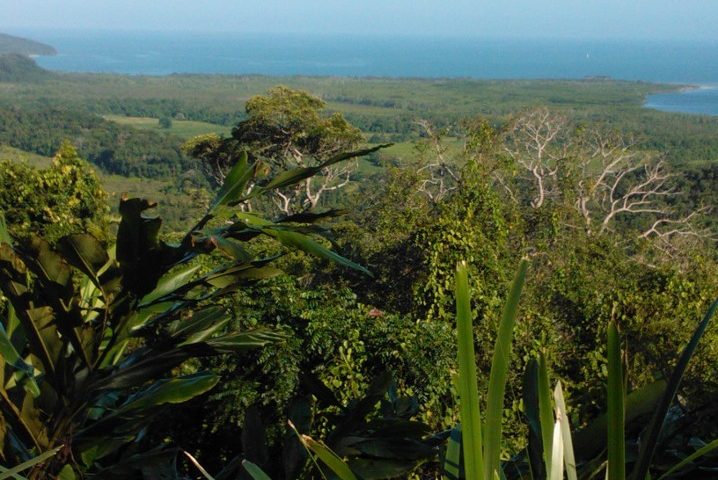
SC: It is certainly – I mean Australia is well known for its cosmopolitan cities around the coastline for sure, but it is difficult to have total representation in legislative bodies and systems of governance in Australia, particularly for people of Indigenous descent because there has been so much fragmentation in their communities, and distance between people who once belonged to the same nations and clans where they could reconnect with the land due to dispossession of the last few hundred years.
CD: We could talk about this for ages, this question coming up. Now remember, I’m not an expert in this so I’m just here really to find out, it’s fascinating stuff – so, Geoff, introduce yourself as well.
GB: I’m Geoff, I’m a freelance journalist and also a student at the University of Brighton doing the MA in Journalism.
CD: Excellent – see, and so we’re all here basically doing the same thing. And so what’s your speciality in the subject?
GB: I just have an interest in a lot of nutritional science surrounding the impact of how we’re eating today – [what this] has had on Indigenous cultures. I’ve also got an interest in human rights issues, and obviously there are a lot of issues concerning Aboriginal people and Maoris in New Zealand and how they are treated. So, that’s my area of interest.
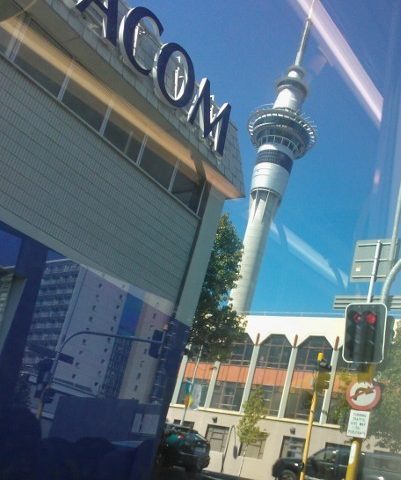
CB: Right, so see how this conversation’s going to go, because we’re talking about human rights of Aboriginal peoples; you’re talking about the nutrition side of that, and it’s going to be fascinating when we get to that part, I think, because just as a bit of a taster – literally – we’re talking about how diets have changed because of … I guess the way that cultures have been changed over the last few hundred years after colonisation, I imagine. And this whole colonisation subject is interesting and, again, not specific to Australia – you’ve had it in Canada, you’ve had it in (what’s now) America, in South America – all over the world, after the Europeans went for that. So, ok, where shall we start? Shall we start with the human rights aspect of things – go for some history? Explain, really, what’s happened since colonial times – since Captain Cook, I guess, came along to Australia? So, Sophie, is that something you’d like to pick up on?
SC: Yes, certainly. I think first I should say, as a disclaimer, it’s obviously very difficult to speak on behalf of hugely diverse peoples of Australia who we are very much separated from, being in the UK for starters! There are hundreds and hundreds of Indigenous nations across Australia who have very particular systems of kinship, and always have. The most difficult part of the colonisation of Australia by European invaders is that 65,000 years of Indigenous history and traditional custodianship of the land – [it] sort of managed to break apart very complex systems of kinship and hundreds and hundreds of smaller nations inside Australia that all have very particular familial networks; it was an incredibly difficult thing for all Indigenous peoples to manage and survive through, and in essence – the way it’s treated in discourse now – is to be considered a genocide of a race of peoples who have still so much history and so much connection to the land, and very particular ways of life which were attempted to be completely extinguished by colonists. And so being able to reconnect those networks, and to be able to settle in homelands where Indigenous peoples can re-establish and continue their ongoing connection with their lands is what is fundamentally important today, and that is why it is so crucial to be able to celebrate and establish the achievements of the Indigenous population of Australia in helping their culture to survive, and continue and flourish today.
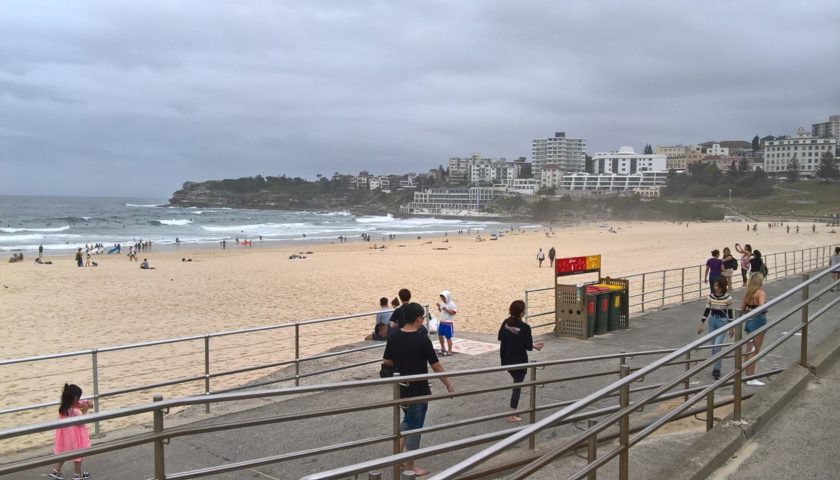
CD: And it is really difficult to do that with any Indigenous culture that has suffered – and I use that word, ‘suffer’ – under colonisation, I’ve had some experience of Canada – and you see how it’s worked over there; there’s segregation, going on to reservations, living in certain parts of cities – and it still happens. In Australia, is it different to that? Is there more of an integration between the original Australian people, if you like, and colonists or descendants thereof?
SC: My personal experience was that there is quite a separation between the way Indigenous people are treated in Australia; the way the systems of governance in Australia treat Indigenous people without respecting the traditional structures of clans and families in producing legislation, and trying to integrate populations around the country – of course, the cities of Australia are very much focused on the coastline but rural Australia is enormous, and often funding for homelands doesn’t trickle through as it should. And as a result of that, lots of the rural areas of Australia tend to be quite deprived in comparison to what you see around the coast, for sure.
CD: Yes, exactly – ok, that’s interesting, but how are the government dealing with this – is there some sort of – I hesitate to say it, it’s probably an outdated term – but some sort of positive move towards integrating people in a fairer way?
SC: I think moves are being made towards representation in the largest federal and state government bodies, more than anything; Ken Wyatt, who is the minister for Indigenous Australians, is trying to fight for an Office for Indigenous Policy Evaluation at the moment so that Australia can take into account the way that Indigenous populations want to self-govern, but also how they should be receiving things that are centrally distributed. I think the idea, really, is to make sure that integration is about treating everybody equally, and making sure that opportunity is not taken away from those who otherwise achieve extremely well; incredible amounts of business success in the Indigenous population at the moment, it’s, well – a symptom hopefully of progress and equality moving forward – social and political equality.
CD: Well that’s good, that it’s moving forward. I think that it’s quite an interesting thing to bring you in on, Geoff, because if we’re talking about helping Aboriginal people to actually just be part of society at large, rather than integrating into another society – if we look at your speciality, Geoff, which is about the diet and the effect of a western diet on Aboriginal people – I mean, start from the beginning with this because this is something I think that a lot of people have got no idea about. That they didn’t – those people don’t eat the same way as other Australians do they – God, I’m making a hash of it! You go for it.
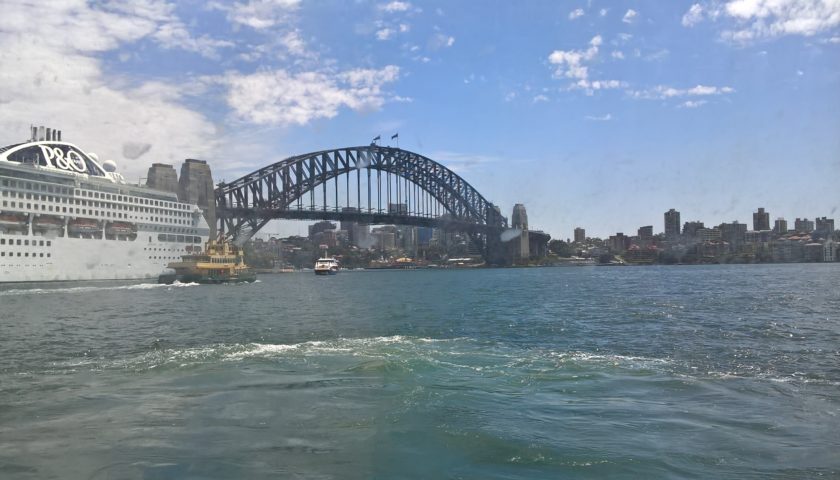
GB: There’s an inextricable link between human rights and health, and one aspect that is rarely spoken about is the impact that western diets have had on the native cultures of Australia and New Zealand. At one time, the New Zealand Māori were considered one of the healthiest populations in the world, but now they are actually among the most unhealthy. [Added post podcast] The latest New Zealand Health Survey found around one in three adults aged 15 and over were obese, including 48% of Maori – compared to 29% of European/others. Similar figures exist in Australia with 39% of Aboriginal people classified as obese, compared to 22% of other Australians.
CD: Ok, now that’s quite a statement – isn’t it? To say that a whole people are unhealthy – why is that? Is there a specific scientific reason we can start with in this discussion for that?
GB: Yes, I mean the dramatic change in the health of the Aboriginal people and the Māori seems to have begun when they started moving away from their Indigenous diets. Their diet was essentially devoid of the grains we so commonly consume today, and they were essentially modern hunter-gatherers. But during the period in which non-native populations came into their countries, they started to move away from their traditional diet. Essentially, the people arriving considered the way they lived and how they ate very primitive, and so those traditions that they had gradually drifted away and they now eat the same food as everyone else.
CD: Which is interesting, isn’t it – the way that you say eating in the ‘primitive’ way – and, again, I’m not trying to stereotype ‘bush tucker’, as it were – but there is extensive research on eating wild, foraging – centuries, thousands of years that people actually lived like that, and they wouldn’t have seen things like perhaps wheat or corn, even, until the colonists arrived. So the impact of them being given that kind of food which means that they don’t have to forage as much as their ancestors did – is that what you’re talking about? Is that part of how things have changed for them?
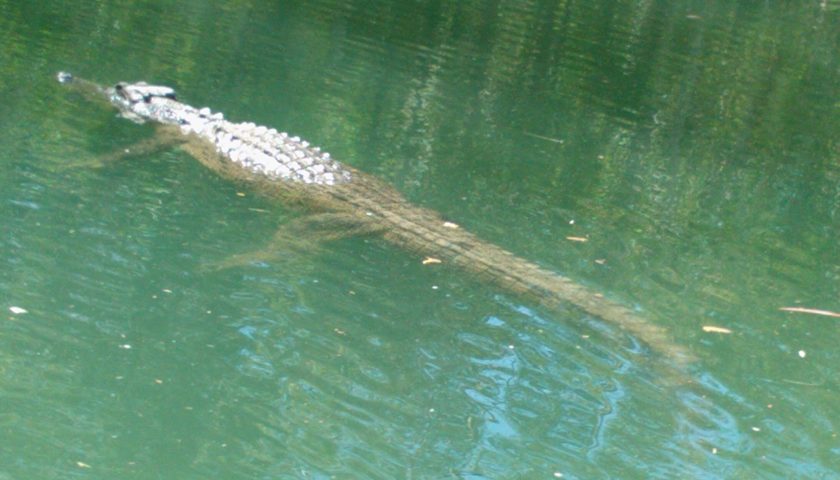
GB: I think that’s exactly part of it, and the latest nutritional science that I’ve seen basically says up until the agricultural revolution about 12,000 years ago, humans were essentially hunter-gatherers; we lived off a mixture of fat and protein, and had only a small amount of carbohydrates in our diet. So how we actually eat today is completely turned on its head. Scientists say we’re not metabolically designed to eat lots of carbohydrates, which is why – it’s suggested – so many western countries are being swamped with the obesity and type-II diabetes epidemics. And Māoris and Aboriginal people seem to have been disproportionately affected by this as well.
CD: Right. Do we know why that is? Is it just because they’ve got access to cheaper carbohydrate-based food?
GB: It’s almost like an industrialised food system. We get 90% of our food from the supermarket – we’re not genuinely going out and catching fresh food that’s been roaming the fields.
CD: No, exactly, too many carbohydrates. Too many cookies and biscuits – in my case, anyway! What can you say. Sophie, how does that work out in terms of the human rights side of things for these cultures, because surely that has an impact on everything – doesn’t it?
SC: It certainly does, and I think it’s a good indication of a long history of breaking up things that drew Indigenous families and clans together; together you decide how to share resources. So for example if you have a totem which is a grey kangaroo, somebody’s moiety means that they are responsible for hunting the grey kangaroo, and the other person’s moiety means that they’re responsible for conserving the habitat of the grey kangaroo, and making sure that they survive. So this idea of tying into land in all respects is a huge part of Indigenous life, and it’s something that has been very much taken away, but still preserved, in many respects.

CD: And that’s fascinating. Sorry to interrupt – that’s fascinating because that’s what, basically, we need and that’s what we’re trying to do now, as a Western civilisation – is to conserve the environment, isn’t it? Which is what they were obviously having to do because researchers were much scarcer in those days, weren’t they? So, for the Australian and New Zealand governments – do you know how they are actually trying to push forward a better way of healthy eating, Geoff? Or Sophie – is there something there to look at?
SC: I would have thought that, in essence, it’s a little bit about centralised governance; so if you have liaisons with different Aboriginal nations of Australia, then you would be able to establish a structure that would work for everybody, in terms of sustainable living and living in accordance with…
CD: … With the land, basically. Or in accordance with nature.
SC: With nature, absolutely.
CD: Ok, so let’s very briefly about – or not, it doesn’t have to be briefly, of course! But let’s talk about NAIDOC Week which is something that’s happening between the 8th and 15th of November over in Australia. Is it just Australia? Who’d like to tell me about that? Go for it, Sophie. So, what’s NAIDOC? That’s a celebration of Indigenous cultures, I understand.
SC: It is, it is indeed – it’s a week not only for the celebration of achievements and progress in Indigenous society in Australia, but it’s also about paying your respect to the long history – an ongoing history of interventions in Aboriginal culture and Aboriginal lifestyles, and how things move ahead to rectify what’s been done in that country; the things that were taken away that are also being re-established and achieved by incredible work across Indigenous nations in Australia.
CD: That sounds wonderful. So, in other words, it’s the whole country getting together to celebrate the achievements, and to re-identify, I guess, exactly the contribution that Aboriginal people can give?
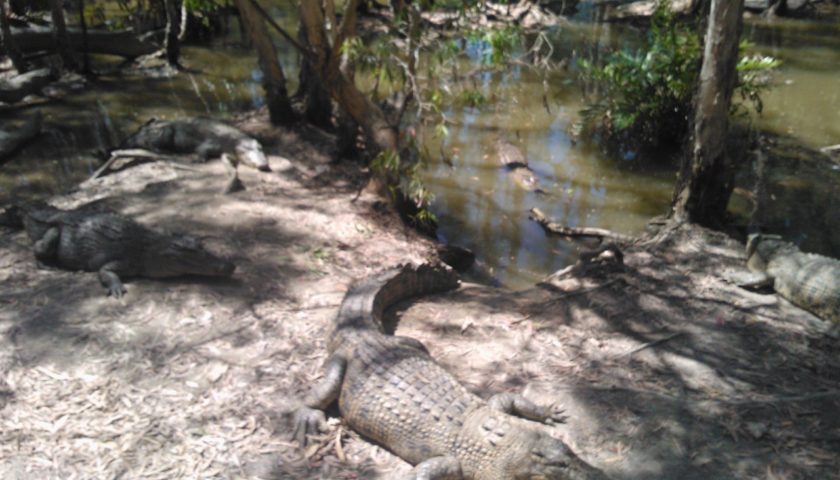
SC: In its essence, it is about understanding that Indigenous Australia has always been there – 65,000 years of history, of traditional custodianship – the sovereign people, the First Nation of that country, and recognising the fact that everything is built on top of something that is continuous and eternal. And that is the history – that is Indigenous history, and it is something that not only needs to be established in a week in a year, but to be a constant; it is Australian history. Actually, the things that we were taught as school kids in the mainstream education system as being Australian history are in fact aspects of new Australian history, or European Australian. This is the real Australia, and it’s something that is, unfortunately, hardly seen by the rest of the world – or certainly by a lot of new Australia.
CD: Well, exactly. Ok, so let’s kick back to the nutrition side of things as well, because hopefully there’s some work being done on that – but one of the things that amazes me is that if you look at British health, and you look at how back in time to the Victorian period – really, we were healthier, which I find hard to believe. Is that right, Geoff?
GB: Yes – it doesn’t seem fathomable, really, but actually it’s recognised in nutritional science that the ‘golden era’ of British health was actually in the mid-Victorian period, which is…
CD: Incredible! I mean, you would have thought with the disease and malnutrition, that wasn’t the case but – sorry, I interrupted. Tell me more.
GB: We’re talking here 1850-1880, basically at a time when the diet was sort of comparable to what we would describe as a modern, low-carbohydrate diet or paleo diet, and life expectancy was comparable to what it is today – and if not, better, in some cases which does sound strange, but this is what the science has shown. And basically that started to change, ironically, when white flour, tinned meat, sugar, canned fruit – this sort of thing started arriving, and that was around 1875 – and within 8 years of that we then started to experience problems of under-nutrition, which is a deficiency of calories, and height deficiencies also emerged.
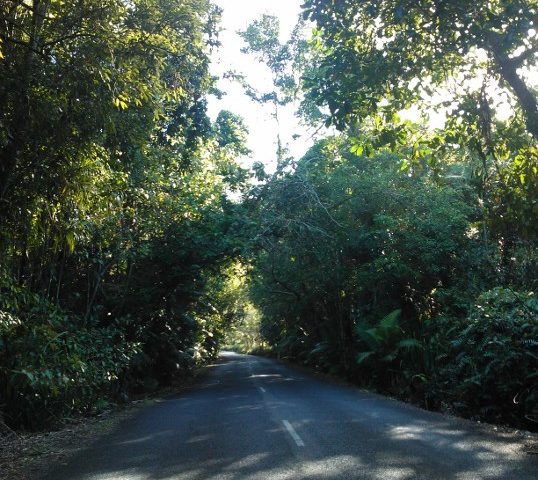
CD: Yes, that’s been in the news recently, hasn’t it? About in the UK, where there are discrepancies in the height of children, they’re saying that this is down to nutrition. And how about health over in Australia, with Aboriginal people, Sophie, is this something that carries through as well with the conversation we’re having?
SC: It does, in fact – I mean at the moment, unbelievably – it’s difficult to understand where the patterns are emerging here, because obviously there are elements of – as Geoff says – dietary instability that cause long-term health problems, but in our current situation during the Covid [pan]demic, it’s only about 0.5% of infections related to Covid-19 that are occurring across Indigenous communities, and I think that is partly due to their community-led pandemic response.
There’s resilience projects funded by the National Indigenous Australians Agency that have helped elderly people – elderly survivors of the Stolen Generations to connect with each other and spread information in a sort of bottom-up approach that I think has helped protect them from the pandemic in quite a big way. And that would explain the figures that we’re seeing at the moment, which is a very low infection rate there, and I think – I [read] an interview with Dr Finlay, who is the Vice President of the [Public] Health Association of Australia’s Aboriginal and Torres Strait Islander Health, I think – but she did say that Aboriginal and Torres Strait Islander people do know how to be responsible for their own health, and they should be contributing to help make the decisions— well, should be making those decisions as there is a huge capability there of protection and healing. And it’s something that’s been like that for thousands of years. Ngangkari are traditional healers across Central Australia, and that’s something that works in harmony with medicine all over the country. It’s just very important to have that community-led response; I think it does protect people’s health.
CD: That’s interesting because, of course, if you’re saying there’s such a low instance of Covid-19 presently within that community – is that because Australia is quite sparsely populated, do you think? And those guys are living away from the main urban connovations [sic] where perhaps there is a higher risk of infection, or is it purely that they’re actually managing it better?
SC: I think it may be the latter more than the former, because obviously we do talk about homelands as being rural areas a lot of the time – which is true because that is how the government has divided up land – but truthfully, we must also think about Indigenous nations and clans who live in urban centres and are part of urban society; those figures do stretch across that area as well. I think it is a lot to do with communication, more so perhaps than locale. Although there are obviously benefits of living on the outskirts of towns and, I mean, to be fair, if I were back in Aus right now I would be worried about living right in the centre of Sydney – I certainly would much rather be somewhere like Dubbo with a lot of space around me.
CD: I think we’ve got the same issue everywhere, haven’t we, really? I think that where we are at the moment, on the South Coast of the UK – I think there’s a bit of a flight from London out to the country areas surrounding London to try to do the same thing. Ok, well this is fascinating stuff. At the end of the day, Geoff, what do you think about that? Do you think that there’s a way that nutrition can help keep us fitter? There must be a way to be able to combat Covid-19 and how that affects us, or is our diet just really not a good idea in terms of being able to thwart the infection?
GB: Yes, I think diet can play a really big role in helping tackle Covid-19, actually. I think how we’re eating at the moment is not optimal for health; I think we can see that around the world, in how we’re having to cope with the epidemic of diabetes and obesity in all of the western world almost, really, and this movement about going back to a more ancestral way of eating – there are scientists saying that this is the way to go, and if you look at the countries which have had the most number of cases of Covid, it’s the UK and it’s America where the problems of obesity and diabetes are particularly rife. So I think there needs to be more research into this area and I don’t know if governments are actually paying attention to what is out there in science, because it doesn’t seem to get mentioned in the mainstream media or among the elected officials. But they really need to look at this because the growing body of work that’s been going on over the past two decades [is] showing this, and it’s left to small groups of people to promote it on social media. And really I think the governments and people in power need to look at it, because that could be a very – not an easy way, but – if we can make some simple changes to our diets, we should surely be trying everything we can to prevent the spread of Covid, and it would save the NHS potentially millions of pounds. Some of the scientists that I’ve been reading about [were] warning, ironically before Covid, that health services around the world would collapse because of the diabetes epidemic unless we take major action which is going to mean needing to change the dietary guidelines that we all operate off, and re-look at them and bring them up to date. These are things that were brought in [during] the 80s – that is decades old. New science – science doesn’t stand still, it continually evolves – and the science has evolved, but the governments and the policies haven’t seemed to have caught up with that. And I’m hoping the people in power are starting to look at this. What we’ve seen in Covid is what they were suggesting would happen anyway, naturally, if we don’t improve our health and nutrition, and it’s happening during Covid, so if we still have Covid as well, then what situation is the world going to be in?
CD: Yes, so this is where – again – it ties in nicely with our conversation with Sophie in terms of the nutrition side of things – where you’re an advocate for a paleo kind of diet, so explain that to people – I quite like the idea of that, because I can chase after a mammoth with a club or something, can I, to go get my dinner? Is that what that kind of thing is about?
CD: “This is where again it ties in nicely with our conversation with Sophie in terms of the nutrition side of things, where you’re an advocate for a Paleo kind of diet.
“Explain that to people because I quite like that idea because I could chase after a mammoth with a club or something to get my dinner. Is that what that kind of thing is about?”
GB: “It’s going back to how we ate ancestrally and trying to tap into our metabolic health.”
CD: “Which is of course what the Aboriginal peoples have been doing and everything has changed for them what with colonisation so it ties well together. So give a quick example of how people are saying or the research is showing our bodies actually work and what’s the best kind of food for us and then we can talk Sophie about whether or not the Aboriginal people are still using that kind of diet or are they moving towards it or not. So Geoff where can I get my club and where can I find the mammoths!”
BG: “Basically, how we are eating at the moment the guidelines are – from governments around the world – are to eat a high carbohydrate diet, your pastas, your rice, potatoes all of that. The research that I’ve read is suggesting that this is causing the health problems we are seeing at the moment – the diabetes and obesity. That is because carbohydrates spike your blood glucose level and the pancreas is forced to secrete insulin to counteract that and basically because we are eating this diet all our lives after a couple of decades the body becomes immune to all the insulin to counteract all the sugar from these refined carbs that we’re eating so we become susceptible to these conditions. The ancestral eating is trying to remove those carbs so you are looking at eating fresh fish, eat grass-fed meat, going back to the traditional ways of how we used to – sort of regenerative farming – which is grass-fed grass-finished beef and other animal meat, letting them roam in their natural habitats. Not the factory farming that we seem to have got ourselves into at the moment.”
CD: “That’s another point of course because food is big business. So we could get into politics here where all this food is being churned out and we are being advertised to in order to become consumers of these things, irrespective of whether or not we believe that it’s a healthy option or not. It’s just a simpler option and we’re told that cereal is a good thing to eat at breakfast when perhaps it isn’t. So how’s that working out over in Australia and New Zealand for the Aboriginal people? Obviously they also following the advertising I guess but to a greater or lesser extent do you think Sophie do they stay with their own ancestral eating?”
SC:“I should preface by sayingI’m not the right person to speak on behalf of any communities in Australia.”
CD: “Noor would you ever claim to!”
SC:“WhatI would say is this is a really interesting argument in respect of natural resources in places like Australia because I do agree with promoting sustainable foods, absolutely, natural resources that grow incredibly well in countries like Australia. There is a movement, often times this does leak into city’s urban centres, sort of central business districts. There is a kind of movement to pick up on superfoods, things that are treated as undiscovered gems and what happens is they become a staple of contemporary cooking in contemporary experimentation. I would always err on the side of caution here because my feeling is this can sometimes be overcultivated, so I’m thinking of things like the Kakadu plum. If suddenly the world decides there’s a massively global demand for Kakadu plums the cultivation of that crop is going to be enormous and therefore is it sustainable anymore? But we can still appreciate obviously the incredible nutritional value of things that have been used as human sustenance for thousands and thousands of years. But just as in any nation, the urban centres and rural parts of a country always receive different ends of food production. I mean, for starters it depends on your economic category because the cheapest foods available to all of us are highly processed foods and it would be absolutely tragic if the stable foods that once provided a huge amount of nutrition to particular people then become hugely inflated and no longer available because they are treated as a novelty. I think a lot of Bush themed restaurants run by non-Indigenous people have started to make use of Australian native plants and crops that are obviously very beneficial for your health.”
CD: “Hang on Sophie I’ve got to stop you there! Wow, that is really interesting. Bush-themed restaurants, you’ve got to explain what that is. What’s on the menu on a Bush-themed restaurant? What’s the ethos behind it because it sounds fascinating and perfect!”
SC:“To be honest Chris I’m not an expert, as I always say about everything, but I did read a little bit about a new trend in using what people do consider very Australian ingredients. We’ve always had kangaroo steaks on the market, even if they haven’t always been that fashionable. But we’re talking about using wattle and lemon myrtle is a flavour that has always been at the high end of artisan food production and now that is absolutely ubiquitous across Australia and that is a native crop that has quite a fragrance. These things are being used in experimental cooking and all over we are quite well off in Australia now, it is quite trendy.”
CD: “That sounds interesting to be able to, celebrate is probably a bit of a strong term, but to enjoy that diet or that cookery. What do you think about that Geoff? Is that something you’d like to see over here in the UK, more sort of paleo-based restaurant menus.
GB: “I would love to see that!
CD: “I bet you would, exactly.”
GB: “There are some companies running Keto/paleo-diet food as delivery services, but if we could actually really get back to this ancestral form of eating. The proper free range, grass-fed, grass-finished meat, freshly-caught fish, trying to get away from all the chemicals and the other rubbish they put in into processed food.”
CD: “Exactly the industrialisation. So another interesting point that follows on from the Keto/paleo diets is about the nutritional information that we all hold. In other words what we believe to be healthy. So we believe that grains, nuts, fish all of those things are healthy. We’ve also discussed that industrialised food production isn’t necessarily healthy and that we could be just being advertised to in order to be consumers of those things. So one of the things that amazes me right now is how does the impact of the family not passing on good nutritional information or guidance affect children, older people. So me as a parent, I understand that eating whatever is very healthy so I encourage my children to eat also eat that. But if that hasn’t happened because the menu choice have changed on the years what sort of impact has that had for the aboriginal people Sophie? Is this something that worries them or worries anybody?
SC:“As you say Chris information about nutrition is passed on through the family. And if you think about the past 100 years of Indigenous history there have been many, many times – especially between 1910 and the mid 60s – when the legal forces took part in a Stolen Generations regime where they were effectively effacing Indigenous children of Australia and what that served to do was to splinter family structures and clans who would ordinarily each have a very specialised understanding of how to work the land and how to engage with their own food sourcing. And I think that disintegration of the family unit – forcibly done so, it’s not as if anyone had a choice in the situation apart from the authorities who chose to destroy family lineages – that is where the natural passing of information about nutrition should be from. And of course, where that has not been able to be continued I am sure there must have been so much lost about traditional eating, how to effectively keep yourself healthy, based on stories that have been passed down for thousands of generations.”
CD: “No exactly, passing on the trope of Bush tucker – eat this, eat that, that’s safe, that isn’t safe. And for Aboriginal peoples that’s how they existed for as you say tens of thousands of years. And I wonder Geoff, in a westernised society is this something that is being discussed at the moment? The idea of not having the nutritional knowledge passed down from generation to generation or even from within a single household.”
GB: “It’s so difficult for consumers today and families that are trying to do the best to bring up their children, obviously for them to be as healthy as possible. People generally are following the dietary guidelines, the problem is we are following the guidelines to a T, but we’re actually getting sicker than we were a couple of decades ago. There’s so much information out there, for every study that comes out and says ‘bananas are good for you’ there’ll be another one that says ‘bananas are bad for you’ and I think this has been going on for such a long period of time I think people are really confused. There are so many mixed messages.”
CD: “I think there’s also an issue where research is sponsored by corporations.”
GB: “That’s the key factor. Listen, scientific research – as people are probably now discovering due to COVID-19 – is really expensive. The gold standard is a randomised controlled trial, it needs to be peer reviewed. This can cost millions of pounds. Part of the issue is it is very difficult to get funding for nutritional science so who steps in? It’s the food companies. And it’s not out of a sense of trying to be deliberately manipulative but the nutritional science ends up pairing with these companies purely to get their report done and sometimes the lines are obviously being blurred and crossed.”
CD: “Which is obviously a frightening thought that the human race is continuing in that way and not being able to pass things down. So that now we need to be wrapping things up, but let’s just talk about NAIDOC Week. It’s a celebration, as we mentioned earlier one, so what can we expect to see? Is there are particular large event that we can look forward to?”
SC: “NAIDOC Week runs between the 8th and 15th of November this year, it was actually moved from July because of coronavirus restrictions on social contact. What usually happens is a lot of outdoor festivities and community events to celebrate not only the history and progress of Aboriginal Australians and Torres Strait Islanders but also to pay respects to the Elders of clans and families and to understand the unending presence of the original Australia in the society that we’ve all worked and lived in today. It is also about appreciating how much work needs to be done to remedy the social inequalities and the disintegration of social coherence that’s been done to Indigenous populations in Australia. NAIDOC Week is a place where these discussions can take place and where a lot of people are supposed to be getting involved in what Australia stands for – not only new Australia and having Australia Day, which is extremely controversial to this day, and to understand why those things need to be discussed still. In fact, in Australia this week there was a vote about whether to fly the Indigenous flag in parliament to celebrate NAIDOC Week and to raise awareness about the aims of the programme and that was voted down in the house unfortunately, which seems a little bit strange when you think about what it stands for. But this year’s theme of NAIDOC Week is Always Was Always Will Be, which I think is a really nice phrase that illustrates the continuation of history that is the essence of Indigenous culture itself. I mean the Dreamtime has always been happening and still is happening. Continuity is the key here and I think that is something NAIDOC Week is seeking to celebrate so it’s a really important time.”
GB: “I think nutritionally we can learn a lot from the Aboriginal and Maori people in terms of how they used to eat and I think there’s a danger – from what we’ve talked about in this podcast of the marginalisation of those communities – all that amazing knowledge that they had of how to interact with the land and the respect the treated the land with. They were hunter-gatherers, which may not go down well with some people today with the rise of the vegan diet – but they did it in a way of great respect. They would catch and animal and they would eat it nose to tail. There’s a lot of criticism in how we eat at the moment – and there is an environmental element to this – that the pace of everyday life we get 90% of our food from the supermarket and we buy the same cut of meat every week. Whereas in those Indigenous cultures they would eat the whole animal, which is obviously better for the environment the way they used to do things and I think there’s a danger we could lose that knowledge. We should actually be going to them and asking them to teach us what they know and trying to get back to that in my view.”
CD: “After this conversation for my dinner tonight I think fresh fish is a good idea! I’ll know where there’s a few fishmongers so I’ll swing by the fishmongers, hopefully they’re open at this time of day. It’s the convenience isn’t it? All food now is just convenient and unhealthy, and this is where our conversation has kind of been going. It’s been fascinating, I’ve learned lots and I also know about the plight of Aboriginal people in Australia and all around and it’s a conversation that we need to continue. So, Sophie how can we get in contact with you? What are your social media details?
SC: “Incredibly I’m a little bit of an antique.”
GB: “She’s a dinosaur!”
SC:“I don’t have a presence online, I lurk, and I don’t talk which is my whole selling point. I’m not sure how long that’s going to go on. You can definitely drop me an email, my contact details are on the OvertimeOnline website where we upload our podcasts.”
GB: “The Tik Tok account is still in planning! But you can find me on Twitter @KetoCrusades.”
SC: “As a final word today we acknowledge and pay respect to all traditional custodians of the land of Australia on which we have lived and worked. We pay respect to Elders past, present and emerging, and extend that respect to all Aboriginal and Torres Strait Islander peoples who continue the cultural, spiritual and educational practices of the Sovereign Peoples of Australia.”









You can now subscribe and download our NAIDOC podcast on iTunes so you can listen wherever you want to.
Here’s the link to download…
https://podcasts.apple.com/gb/podcast/naidoc-week-podcast/id1542598236
Spotify link is here:
https://open.spotify.com/show/0FKT1uNb7UQPI5x0behsun
Or, if you like your podcasts through Deezer, you can subscribe to NAIDOC Week 2020 here:
https://www.deezer.com/show/2032952
If you are a Podcast Addict and want to subscribe to hear our NAIDOC Week discussion, you can click here:
https://podcastaddict.com/podcast/3172708